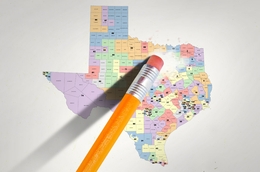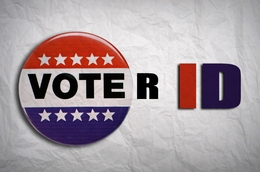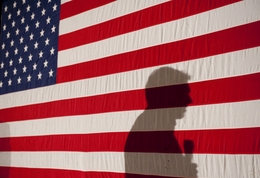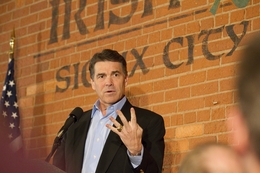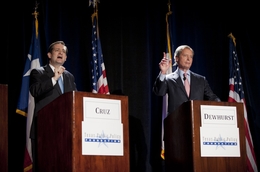The insiders think Ron Paul's biggest obstacle is Ron Paul, are pessimistic about Texas Democrats, and predict Democratic primaries focused on education and Republican primaries focused on spending and taxes.
We started off by asking why Texas congressman Ron Paul can't into the front position in the GOP presidential primary. The overwhelming answer? His ideas, according to 78 percent of the insiders. Another 6 percent blamed his age (Paul is 76 years old); 4 percent put the blame on his competition, and 1 percent blamed the media.
We asked when Texas Democrats will become competitive in statewide elections (they haven't won one since 1994). A scant 3 percent of the insiders think this is the year. Another 23 percent say it'll be 2014, 26 percent say 2016, and the rest — 48 percent — say they don't know.
Education will be the dominant issue in Democratic primaries this year, according to 48 percent of the insiders. The economy, with 17 percent, was next, followed by state spending, and health care/human services. Money topped the Republican issues, with state spending getting 28 percent, while 20 percent said taxes will be the big issue and another 20 percent said the economy will be the big issue. Immigration and education came next.
As always, we left space for the insiders to comment and have attached a full set of their verbatim answers. Here's a sampling:
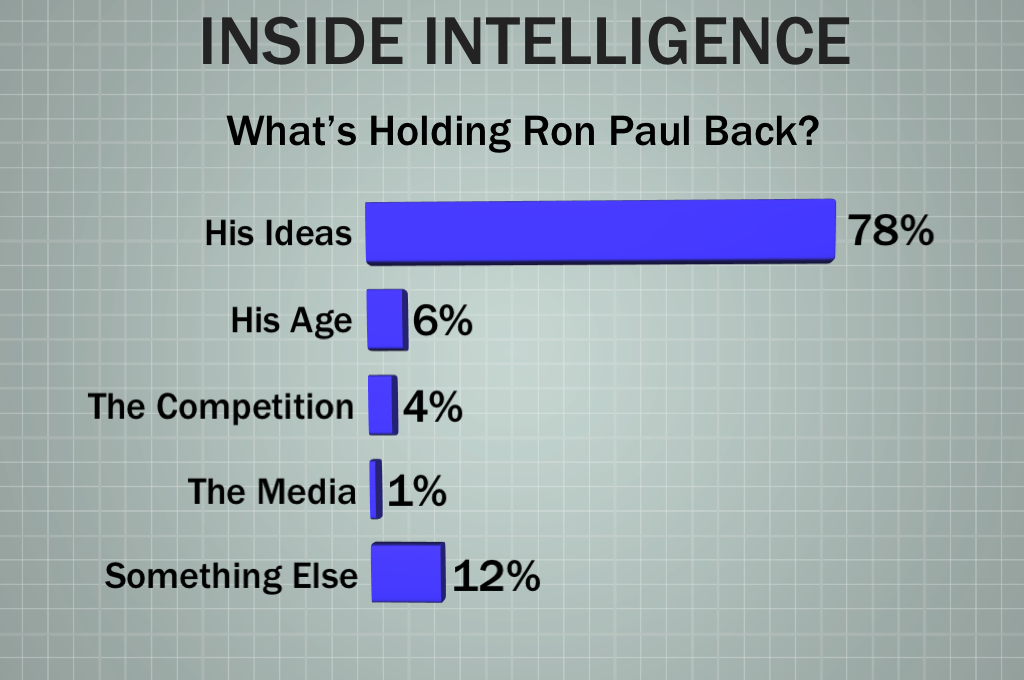
.
What is Ron Paul's biggest obstacle in the GOP primaries?
• "Wish I could combine several of these, because I think his age and ideas tie into the media narrative that has dismissed him. While his ideas really are not that out of touch, the media decided that they are, and that has sadly impacted his campaign. However, when he is on the stump and in front of voters face-to-face, he wins them over. He has a loyal and dedicated following, but it won't be enough to win the nomination."
• "He is far to intellectual for the majority of voters, yet for those that listen he articulates something that nearly everyone believes and also fears."
• "A lot of Republicans love half of what Paul has to say and hate the other half."
• "Way too out there on wars and foreign relations"
• "Actually, this needed an all of the above option."
• "His "cereal" supporters--there are too many fruits, flakes, and nuts in that bowl."
• "Ron Paul is simply out of step with the great majority of Republican primary voters. His following, while loyal, is limited."
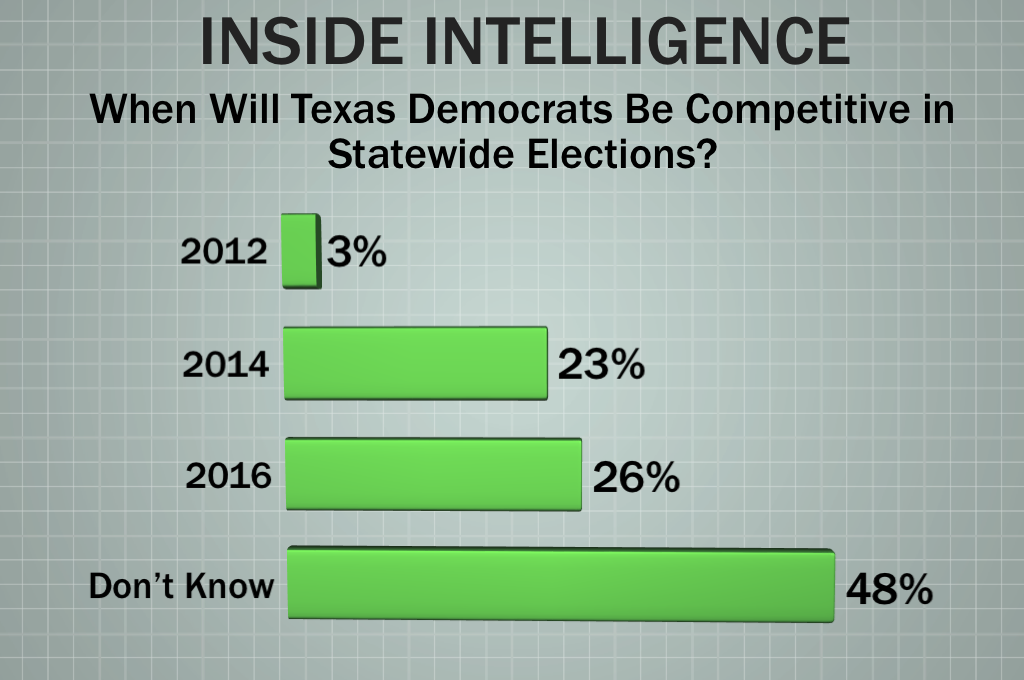
.
When will Texas Democrats be competitive in statewide elections?
• "Demographic/voter studies since the 80's have been pretty accurate as to shifts in voting trends thus far (see Rs in early-mid '90s); those same studies have consistently pointed to ~2014-2016 as the point where Ds take back statewide offices. While the economy and other national events might have slowed some of this shift, esp for working class whites, the Rs certainly aren't doing much if anything to slow the continued solidification of the Hispanic voting bloc, so the voting trend predictions should generally hold."
• "For the first time in a long while, there may actually be a window of opportunity for the Ds. And this time, the window may actually be open — just a bit, though."
• "Not until they find a way to be pro-business, particularly small business in some way; find some message other than trial lawyer supplied messages."
• "Dem failures are tied to structural and financial issues rather than ideology. With a strategy and a means to turnout the base vote, we will be competitive."
• "The pendulum is swinging back to Blue."
• "Not anytime soon."
• "They won't be competitive until they strike a more centrist tone with independents and the business community. And it would help if they found a source of funding that does not come from the trial bar"
• "Republicans have had a steady 12 point advantage for the last decade or so and that will come down slowly. How slowly depends on the growth of Hispanic involvement. It's at least 10 to 15 years out."
• "When Hispanics start to vote in their numbers."
• "What is a Texas Democrat?"
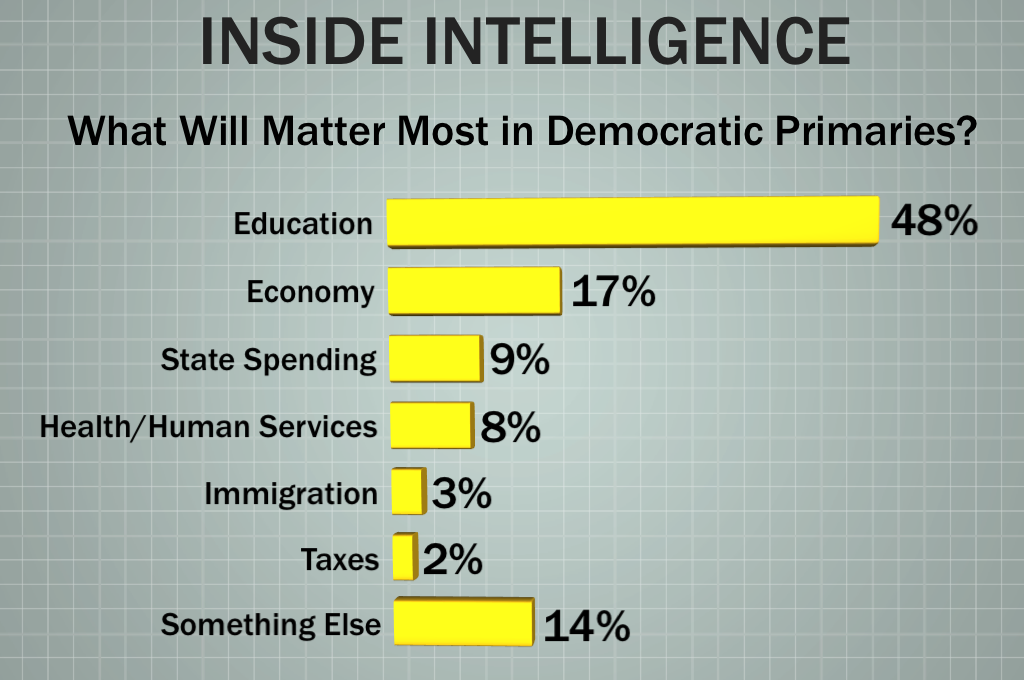
.
What will matter most in this year's Democratic primaries?
• "Electability and local issues"
• "Highly variable--there is also a throw the rascals out insurgency that is in both primaries but will be a function of local candidates and conditions"
• "Jobs and the economy are important and key issues for the Democrat and Republican voters this election cycle. Job/Economy, Education, Immigration and Health Care will be the issues that matter to the Latino voters."
• "It'll be the holy trinity of the Dems: health care/human services, education, and protecting racial and ethnic minorities. You can't expect to win in a Dem primary without heavily emphasizing each of those equally."
• "D primaries aren't very competitive this year -- Nothing to fight over."
• "Jobs"
• "The democrats' constituents have a higher unemployment rate than the general population. It should be jobs, jobs, jobs."
• "The Republicans handed the Democrats an enormous gift when they carved up the public schools."
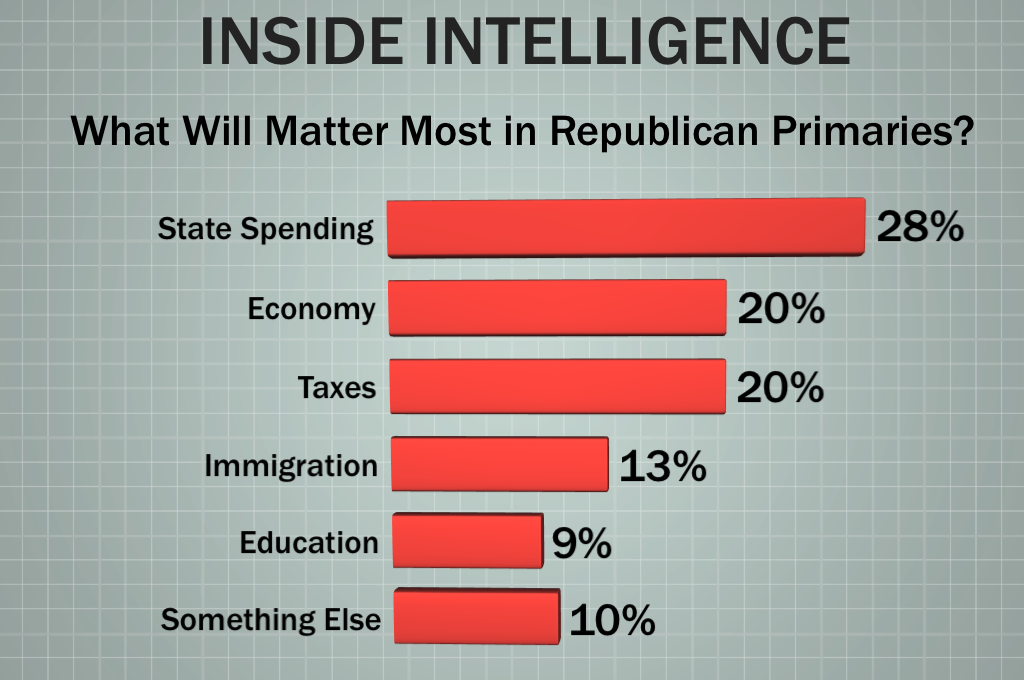
.
What will matter most in this year's Republican primaries?
• "My head hurts when I try to figure out what Texas Republican primary voters will do in statewide races, let alone in local district races."
• "Economy. Taxes. Holding the line on state spending. Don't see the Rs ordering new hymn books for this election."
• "The same social issues since 1994 (god, gays, guns) + Obama."
• "Abortion and immigration"
• "Education from one set of challengers, taxes and spending from another."
• "Jobs"
• "Trying to sound conservative without appearing clueless about how they're going to pay for the next budget after the state loses the education finance lawsuits."
• "The Republicans ran against Obama in an off-year. They won't be able to help themselves this time around. It will be Obamageddon all the time."
Our thanks to this week's participants: Gene Acuna, Cathie Adams, Brandon Aghamalian, Clyde Alexander, Doc Arnold, Jay Arnold, Louis Bacarisse, Charles Bailey, Tom Banning, Walt Baum, Eric Bearse, Leland Beatty, Dave Beckwith, Rebecca Bernhardt, Andrew Biar, Allen Blakemore, Tom Blanton, Hugh Brady, Steve Bresnen, Chris Britton, Andy Brown, Lydia Camarillo, Marc Campos, Thure Cannon, Mindy Carr, Snapper Carr, Corbin Casteel, William Chapman, Elizabeth Christian, Elna Christopher, George Cofer, Rick Cofer, Harold Cook, Randy Cubriel, Hector De Leon, Tom Duffy, David Dunn, Jeff Eller, Jack Erskine, Alan Erwin, Gay Erwin, John Esparza, Jon Fisher, Neftali Garcia, Dominic Giarratani, Bruce Gibson, Kinnan Golemon, Daniel Gonzalez, Thomas Graham, Kathy Grant, John Greytok, Jack Gullahorn, Clint Hackney, Wayne Hamilton, Bill Hammond, Albert Hawkins, John Heasley, Jim Henson, Ken Hodges, Billy Howe, Laura Huffman, Shanna Igo, Deborah Ingersoll, Robert Jara, Cal Jillson, Mark Jones, Robert Kepple, Richard Khouri, Tom Kleinworth, Nick Lampson, Pete Laney, Dick Lavine, James LeBas, Donald Lee, Luke Legate, Homero Lucero, Vilma Luna, Matt Mackowiak, Phillip Martin, Dan McClung, Mike McKinney, Robert Miller, Bee Moorhead, Steve Murdock, Craig Murphy, Keir Murray, Keats Norfleet, Pat Nugent, Nef Partida, Gardner Pate, Tom Phillips, Wayne Pierce, John Pitts, Royce Poinsett, Kraege Polan, Jay Propes, Ted Melina Raab, Bill Ratliff, Kim Ross, Jason Sabo, Mark Sanders, Andy Sansom, Jim Sartwelle, Stan Schlueter, Bruce Scott, Steve Scurlock, Dan Shelley, Christopher Shields, Dee Simpson, Ed Small, Martha Smiley, Larry Soward, Dennis Speight, Jason Stanford, Bob Strauser, Colin Strother, Charles Stuart, Michael Quinn Sullivan, Sherry Sylvester, Jay Thompson, Russ Tidwell, Trent Townsend, Trey Trainor, Ware Wendell, Ken Whalen, Darren Whitehurst, Michael Wilt, Peck Young, Angelo Zottarelli.
